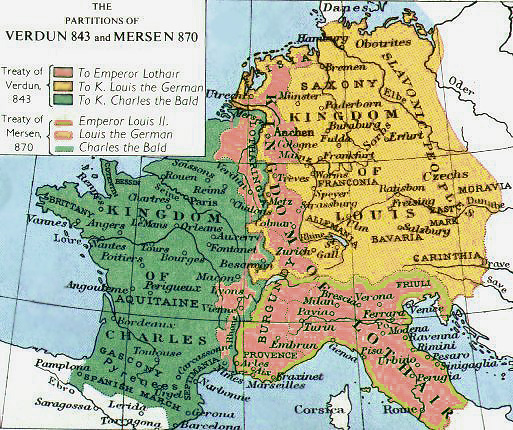During the crusades, “Freiherr” distinguished those who were free men from those who were servants.
Charlemagne appointed men who could read and write as a “Graf” with specifc duties. A Burggraf was the commander of a castle which belonged to Charlemagne. A Markgraf was the tenant and military inspector in chief for a land located near an unsafe boundary. Later Graf became a noble title for the hereditary ruler of a Grafschaft (county) or Markgrafschaft (margraviate).

In earlier times noble titles were unknown. A free man was a “Herr” and was addressed in this way. The King and Emperor was likewise a “Herr”.
All who had a seat and vote in the Imperial Assembly were titled Fürst.
“Adel” derives from germanic “adil” meaning something shining, and was not in common use until Martin Luther wrote a open letter addressed to the “deutschen Adel”.
To the “Uradel” (old nobility) belongs all those who can prove that their ancestors were free and knightly born before 1360. “Briefadel” (literally noble by Letters Patent) are all others who became ennobled after 1360 by the issue of Letters Patent. Until 1888, holding an estate was required to be ennobled and become a Graf or Freiherr.
Emperor of the Holy Empire delegated this right to issue Letters Patent to many persons and institutions as follows:
a. The Emperor and his descendants
b. The Chancellors of the Holy Empire, for instance the Archbishop of Cologne
c. The Pfalzgrafen
d. The Imperial administrators like the Dukes of Bavaria and the Dukes of Saxony
e. The Hofpfalzgrafen (Comes Palatinus). The later Princes of Schwarzburg were Hofpfalzgrafen. The office of Hofpfalzgraf could also be granted to a university or town.
The feudal title “Schulte” (latinized scultetus) was appointed by for his tenures. He was a sheriff in personal union. He also got a personal fief as a reward for his service. The fief was usually located in the center of the area of his responsibility. The bearers of this feudal title had one thing in common, they were born free and from knightly descent.